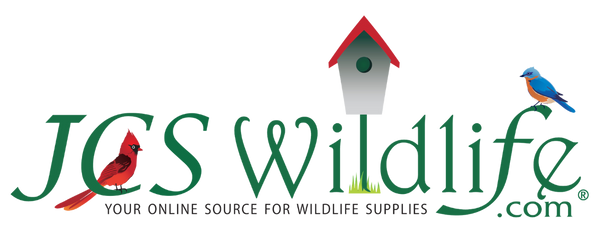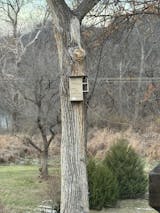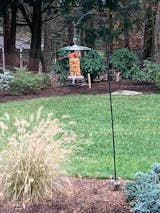How many hobbies can you name that requires minimum materials, may be done any time of the year, and rarely requires you to leave the comfort of your home?
Did you know that February is National Bird-Feeding Month? According to Wikipedia, the celebration was created to educate people about bird feeding and bird watching as a hobby. This celebration is timely as well. The birds that have stuck around for the winter may find it difficult to find the berries and insects that are available the rest of the year.
According to the Cornell Lab of Ornithology, there are some common questions (many of which we get as well) when it comes to winter feeding:
Q: What types of food are best to feed birds during winter?
A: You can never go wrong with black oil sunflower seed. This is a popular food year-round for most seed-eating birds. Just be aware that squirrels love it too. If you prefer to feed just the birds and leave the squirrels out of the equation, you may want to consider investing in a squirrel-proof bird feeder or a squirrel baffle.
Other foods such as suet or dried insects are also an excellent source of energy and nutrients. The types of foods to steer clear of are seed blends that include filler seeds as a main ingredient (remember: the higher on the ingredient list you find an ingredient, the more of it is included in the mix). Seeds to watch out for are golden millet, red millet, and flax. These seeds do not harm birds, but they can cause a lot of waste.
Q: How full should I have my
birdbath in the winter?
A: Keep in mind that you are offering water to birds in the winter to drink, not to bathe. You can use a heated birdbath or you can purchase a separate deicer or heater for the bath you have. You can create a raft or an island with sticks or stones and place it in your bath so that birds may drink your water without having to get wet.
Q: Won't feeding the birds in winter prevent them from migrating?
A: No. Not all birds "fly south" for the winter. Those that do will do so whether you provide seed year-round or just during nesting season. This is actually a popular myth among avid hummingbird feeders. However, the truth is that migratory birds migrate for several reasons, not just lack of food, and the reasons for migrating is different for various species. For hummingbirds, the Cornell Lab of Ornithology suggests putting nectar out early in the year (before you normally spot the first hummer), and keeping nectar out several weeks after you see the last hummer.
Find everything you need to feed your feathered friends any time of year on our website!
Happy Feeding!



